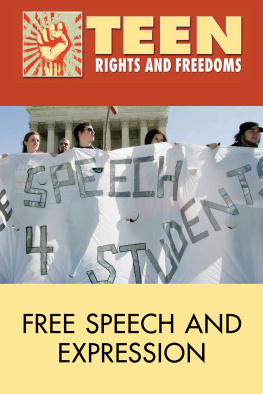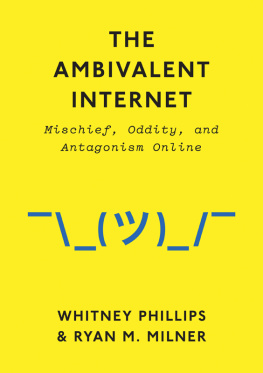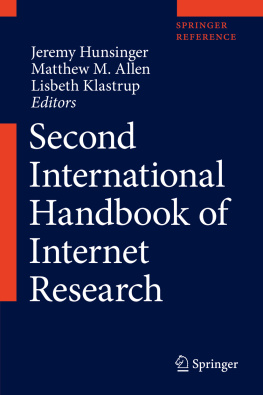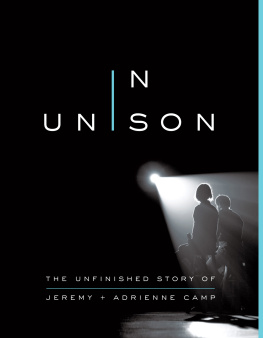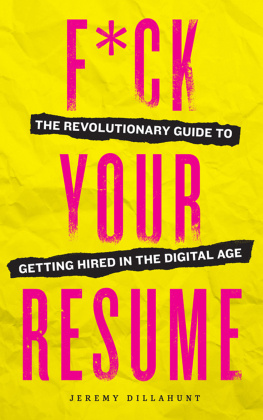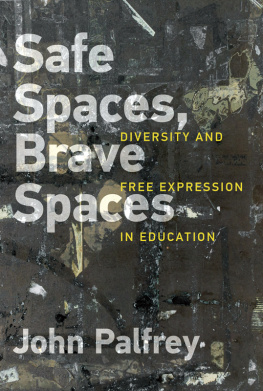Jeremy Lipschultz - Free Expression In The Age Of The Internet
Here you can read online Jeremy Lipschultz - Free Expression In The Age Of The Internet full text of the book (entire story) in english for free. Download pdf and epub, get meaning, cover and reviews about this ebook. year: 2018, publisher: Routledge, genre: Politics. Description of the work, (preface) as well as reviews are available. Best literature library LitArk.com created for fans of good reading and offers a wide selection of genres:
Romance novel
Science fiction
Adventure
Detective
Science
History
Home and family
Prose
Art
Politics
Computer
Non-fiction
Religion
Business
Children
Humor
Choose a favorite category and find really read worthwhile books. Enjoy immersion in the world of imagination, feel the emotions of the characters or learn something new for yourself, make an fascinating discovery.

- Book:Free Expression In The Age Of The Internet
- Author:
- Publisher:Routledge
- Genre:
- Year:2018
- Rating:5 / 5
- Favourites:Add to favourites
- Your mark:
- 100
- 1
- 2
- 3
- 4
- 5
Free Expression In The Age Of The Internet: summary, description and annotation
We offer to read an annotation, description, summary or preface (depends on what the author of the book "Free Expression In The Age Of The Internet" wrote himself). If you haven't found the necessary information about the book — write in the comments, we will try to find it.
Free Expression In The Age Of The Internet — read online for free the complete book (whole text) full work
Below is the text of the book, divided by pages. System saving the place of the last page read, allows you to conveniently read the book "Free Expression In The Age Of The Internet" online for free, without having to search again every time where you left off. Put a bookmark, and you can go to the page where you finished reading at any time.
Font size:
Interval:
Bookmark:

University of Nebraska at Omaha

711 Third Avenue, New York, NY 10017, USA
2 Park Square, Milton Park, Abingdon, Oxon OX14 4RN
Product or corporate names may be trademarks or registered trademarks, and are used only for identification and explanation without intent to infringe.
Lipschultz, Jeremy Harris, 1958
Free expression in the age of the Internet: social and legal
boundaries / Jeremy Harris Lipschultz.
p. cm.
Includes bibliographical references and index.
ISBN 0-8133-9108-3 (hc). ISBN 0-8133-9113-X (pb)
1. Freedom of speechUnited States. 2. Internet (Computer
network). 3. Mass mediaSocial aspects. I. Title.
KF4772.L57 1999
342.73'0853dc21 99-41536
CIP
- xvi
- xvii
- Tables
- Figures
- Boxes
Omaha, Nebraska
- ACLU American Civil Liberties Union
- AOL America Online
- CDA Communications Decency Act
- CEO chief executive officer
- CMC computer-mediated communication
- COPA Child Online Protection Act
- CTW Children's Television Workshop
- ECPA Electronic Communications Privacy Act
- FCC Federal Communications Commission
- FDA Food and Drug Administration
- FOI freedom of information
- FTC Federal Trade Commission
- GUI graphical user interface
- HTML hypertext markup language
- IEG Internet Entertainment Group
- IM instant message
- IRS Internal Revenue Service
- ISP Internet service provider
- LAN local area network
- MIT Massachusetts Institute of Technology
- MSN Microsoft Network
- NTIA National Telecommunications and Information Administration
- PC personal computer
- POV point of view
- ProComp Project to Promote Competition in the Digital Age
- RIAA Recording Industry Association of America
- SPLC Southern Poverty Law Center
- TOS terms of service
Social Communication Theory of Free Expression
Font size:
Interval:
Bookmark:
Similar books «Free Expression In The Age Of The Internet»
Look at similar books to Free Expression In The Age Of The Internet. We have selected literature similar in name and meaning in the hope of providing readers with more options to find new, interesting, not yet read works.
Discussion, reviews of the book Free Expression In The Age Of The Internet and just readers' own opinions. Leave your comments, write what you think about the work, its meaning or the main characters. Specify what exactly you liked and what you didn't like, and why you think so.

